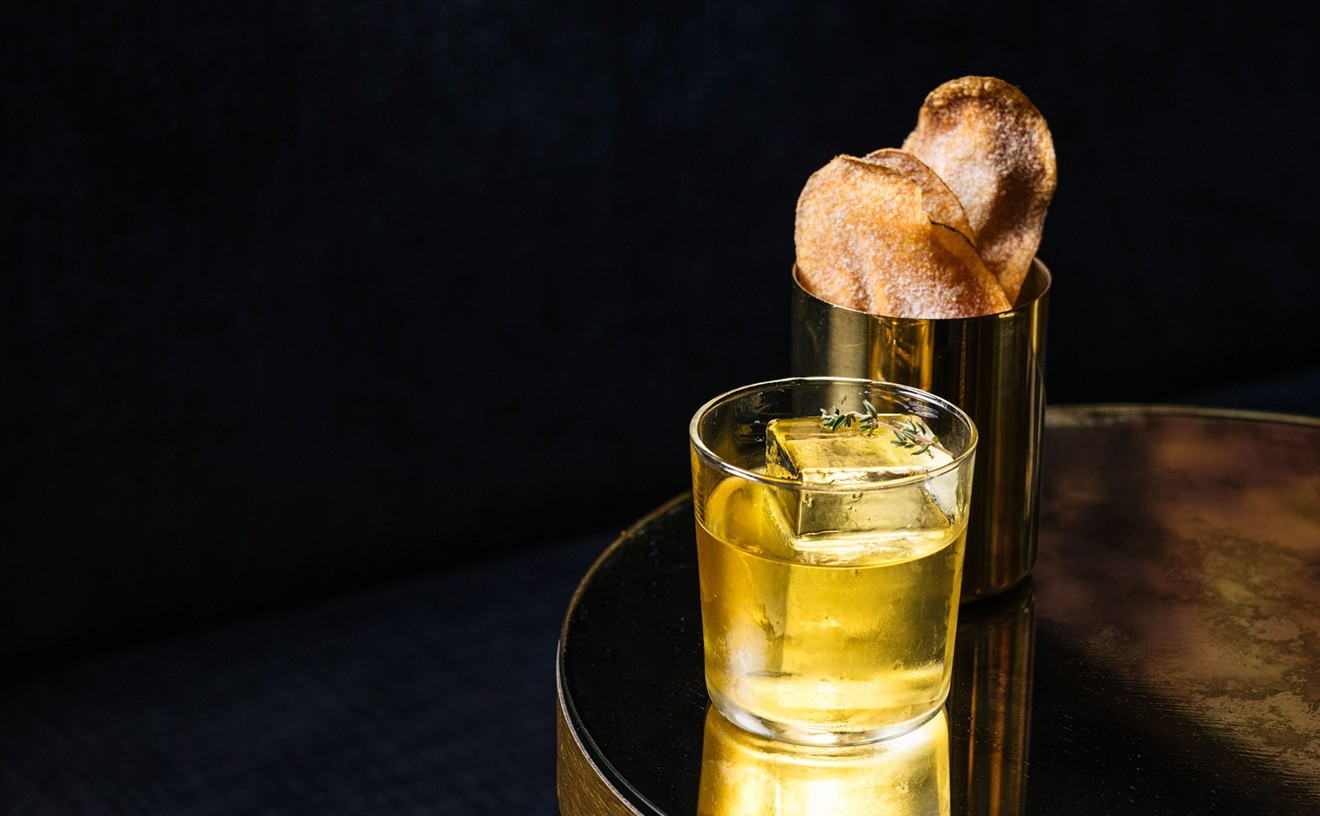Chow Bella has a valentine for you. For the rest of February, we're handing out Candy Hearts -- stories of food and love from some of our favorite writers. Enjoy.
In the 1940s, my father and his parents spent two long years imprisoned in concentration camps in Holland and Germany, where food was first scarce and then almost nonexistent. My Oma, apparently, was incapable of rationing the watery soup and crusts of bread that the Nazis doled out once a day -- she would eat what she was given immediately, which is understandable, given that she was starving, but which meant that she had nothing for the next 24 hours So it fell to my teenage father, her only child, to take her food and ration it for her. I don't know where he found the strength, for that or for any of the other things he did to keep himself and his parents alive.
See also: --The Bitter and the Sweet: A Thanksgiving Story --Candy Hearts: Stories of Food and Love
Growing up, I didn't get to see my grandparents very often. We called them Oma and Opa, which is German for "grandma" and "grandpa." They lived in Zurich, Switzerland, and visits were infrequent. Still, we maintained a close connection. My father called them every weekend, and my brothers and I would sit on the edge of the bed next to him waiting for our turn on the beige princess phone, racking our brains for something suitable to tell them.
My father spoke to his parents in their native German; my brothers and I spoke in English and our grandparents tried to keep pace. The argot of American childhood must have been an entirely foreign language, far more so than English, but they never gave up, and we could always feel their love for us, in person or over the phone, and knew with complete certainty that as far as they were concerned, we were the best thing that had ever happened in the history of the world. No people were -- nor ever had been -- more delightful, more intelligent, more charming, than my brothers and me.
The gifts that came for us from Zurich were marvels. Even though I was a tomboy and hated wearing dresses, I could appreciate the beauty of the clothes Oma and Opa sent, including a lemon-yellow silk chiffon confection with puff sleeves and ruching on the bodice. I wore it for my 7th birthday, and I do remember feeling special, if slightly awkward (because it was after all a dress and not pants). For my brothers, there were velour jumpers and corduroy pants. Once or twice, my grandparents sent my brothers lederhosen, the suede shorts and suspenders traditionally worn by boys in Switzerland. For me, there would be a dirndl, the traditional Swiss outfit for girls, dark blue with embroidery on the skirt and a white shirt to wear underneath. These clothes we dutifully put on for a photograph, which my father sent to his parents and then never wore again.
Best of all were the twice-yearly packages of chocolate, one in the spring when my brothers and I had our birthdays, and one in late fall, before Hanukkah. Zurich is the home of Lindt, and Lindt, my father said, was the best chocolate in the world. It certainly looked and tasted that way to us. Each package held an astonishing variety of shapes and flavors, from rectangles with funny drawings of animals on them (which clearly were for children) to bars of chocolate so dark and dense that one small piece was a trip to somewhere else, as good as a book. My favorite was the Duo bar: milk chocolate layered on dark chocolate with little crunchy things sprinkled throughout.
Each package of chocolate lasted for months. It was stored high up in the china cupboard in the dining room and brought down on the weekends, mostly. There would be a colorful, foil-wrapped piece for each of us after Shabbat dinner on Friday, and maybe several squares of something more exotic -- marzipan-filled, for example, or chocolate with orange -- to go with cookies at tea time on Sunday afternoon. My father took great pleasure in parcelling out those sweets his parents had sent us from Europe, and we took great pleasure in unwrapping and eating them. Today, I still eat chocolate slowly, in pieces, stretching it out over the days and treasuring each bite. My American friends, and my American child, find this habit odd, perhaps even stingy. But it doesn't feel stingy to me. It feels generous.










